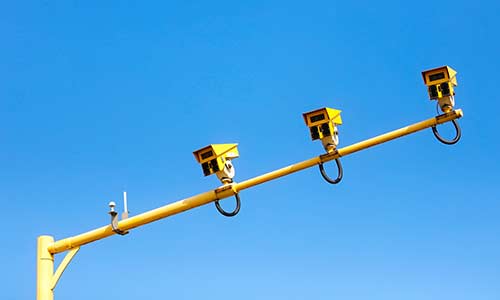Speeding ticket appeals: The process explained
It goes without saying that the best way to avoid having to pay a speeding fine or attend a speed awareness course is to drive within the UK speed limits in the first place.
Unfortunately, even the most conscientious drivers can mistakenly slip over the speed limit - and catch the attention of a nearby speed camera or police officer. This will often result in a speeding fine being issued.
If you’ve received a speeding ticket, there’s a good chance it was issued on the back of compelling evidence. However, what if you feel that the fine was unjust?
Perhaps you’re certain that you were driving within the speed limit on the stretch of road in question. Speed cameras have a small margin of error and in rare cases, may also be wrongly calibrated. If you’re confident you were in the right, this could mean that the police officer who issued your fine did so in error.
In this guide, we’ll provide a list of common grounds for appealing a speeding ticket - and outline the steps to follow should you wish to do so. We’ll also cover some key questions around the topic of speeding ticket appeals to help you decide what’s right for you.
Get a free valuation
Can you appeal a speeding ticket?
Yes, you can appeal a speeding ticket, but this doesn’t automatically mean that you should. Unless you are sure that you were given the ticket unlawfully or by mistake, you should consider whether it’s worth appealing – and whether you even have reasonable grounds for doing so.
Should you appeal a speeding ticket?
In rare circumstances, a speeding ticket may be issued to someone other than the intended recipient. For example, the ticket may have been meant for another vehicle using a cloned number plate matching yours.
If you believe this has happened, you should contact the police immediately and explain the situation. However, this is a very rare occurrence - and the chances are, you’ll be making your appeal for another reason.
Common grounds for appealing speeding tickets include:
- Disputing the accuracy of average speed cameras.
- Missing speed limit signs where the alleged offence took place.
- The Notice of Intended Prosecution (NIP) included incorrect information or was not sent within 14 days of the alleged offence.
- You were speeding due to ‘exceptional circumstances’.
- You believe that the fine does not reflect the severity of the offence. (Try our speeding fine calculator and you will see that this is rarely the case!)
Remember, you’ll have to go to court if you want to appeal a speeding ticket. Aside from being inconvenient, the appeal may cost you substantially more than the fine itself if you are ultimately unsuccessful.
With this in mind, you should not appeal a speeding ticket unless you are confident that you have good grounds for doing so (and that the courts will find in your favour).
How to appeal a speeding ticket
-
Step 1: Respond to the speeding ticket, indicating that you do not plead guilty to the alleged offence. Following this, a court summons will be sent to your address.
-
Step 2: Contact a solicitor. Some drivers choose to represent themselves to save on legal fees. However, this is extremely risky and representing yourself successfully will require a lot of specialised knowledge.
-
Step 3: Attend your court date, ensuring that you bring any information or evidence that you plan to use to support your case.
-
Step 4: You will receive a verdict on your appeal either on the day or delivered to your home in writing. You should take this decision as final, even if it did not go your way. You won’t usually be granted a second appeal, as this would almost certainly produce the same outcome.
How long do I have to contest the speeding ticket?
If you wish to appeal a speeding ticket, you must indicate this in your response to the NIP within 28 days of receiving it. No appeals will be accepted outside of this timeframe - and a late response will lead to more serious consequences.
What happens when you appeal a speeding ticket?
You can’t appeal a speeding ticket through the police. Instead, you’ll have to go to court in order to resolve the issue.
If your appeal is successful, your speeding ticket will be overturned. However, this is not the likely outcome of any speeding ticket appeal.
Can you contest a smart motorway speeding fine?
You can appeal a smart motorway speeding fine if you really want to. However, it’s highly unlikely that any court will find in your favour, especially given how carefully smart motorways are monitored.
Can I appeal a variable speed limit fine?
If you really feel that your variable speed limit fine was issued incorrectly, you can appeal it.
However, variable speed limits are set using cutting-edge technology that works with a high level of accuracy. Therefore, the chances that the fine was wrongly issued are very slim, meaning you are unlikely to win your appeal.
The reality of appealing
It’s estimated that less than 1% of speeding tickets given in the UK annually are contested – and less than half of these appeals are ultimately successful.
Speed limits are monitored by high-tech equipment and experienced police officers. So, if you’ve been given a speeding fine, it was probably issued with good reason. Remember, exceeding the speed limit by even 1mph is illegal.
Furthermore, if your appeal is rejected, you won’t just be expected to pay the original fine – you will also be liable for legal costs, an increased speeding fine - and you could even receive points on your licence!
Therefore, if you receive a speeding fine and can’t confidently disprove its validity, we recommend that you accept and pay the fine – and carefully monitor your speed going forward.











